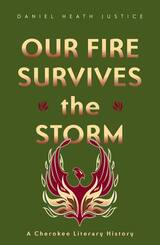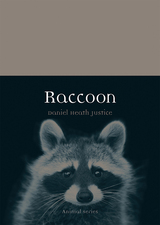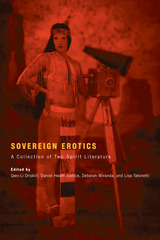4 books by Justice, Daniel Heath

Badger
Daniel Heath Justice
Reaktion Books, 2015
Fierce, menacing, and mysterious, badgers have fascinated humans as living animals, abstract symbols, or commercial resources for thousands of years—often to their detriment. With their reputation for determined self-defense, they have been brutalized by hunters and sportsmen, while their association with the mythic underworld has made them idealized symbols of earth-based wisdom and their burrowing habits have resulted in their widespread persecution as pests. In this highly illustrated book, Daniel Heath Justice provides the first global cultural history of the badger in over thirty years.
From the iconic European badger and its North American kin to the African honey badger and Southeast Asian hog badger, Justice considers the badger’s evolution and widespread distribution alongside its current, often-imperiled status throughout the world. He travels from natural history and life in the wild to the folklore, legends, and spiritual beliefs that badgers continue to inspire, while also exploring their representation and exploitation in industry, religion, and the arts. Tracing the complex and contradictory ways in which this fascinating animal endures, Badger will appeal to anyone interested in a deeper understanding of these much-maligned creatures.
From the iconic European badger and its North American kin to the African honey badger and Southeast Asian hog badger, Justice considers the badger’s evolution and widespread distribution alongside its current, often-imperiled status throughout the world. He travels from natural history and life in the wild to the folklore, legends, and spiritual beliefs that badgers continue to inspire, while also exploring their representation and exploitation in industry, religion, and the arts. Tracing the complex and contradictory ways in which this fascinating animal endures, Badger will appeal to anyone interested in a deeper understanding of these much-maligned creatures.
[more]

Our Fire Survives the Storm
A Cherokee Literary History
Daniel Heath Justice
University of Minnesota Press, 2006
Once the most powerful indigenous nation in the southeastern United States, the Cherokees survive and thrive as a people nearly two centuries after the Trail of Tears and a hundred years after the allotment of Indian Territory. In Our Fire Survives the Storm, Daniel Heath Justice traces the expression of Cherokee identity in that nation’s literary tradition.
Through cycles of war and peace, resistance and assimilation, trauma and regeneration, Cherokees have long debated what it means to be Cherokee through protest writings, memoirs, fiction, and retellings of traditional stories. Justice employs the Chickamauga consciousness of resistance and Beloved Path of engagement—theoretical approaches that have emerged out of Cherokee social history—to interpret diverse texts composed in English, a language embraced by many as a tool of both access and defiance.
Justice’s analysis ultimately locates the Cherokees as a people of many perspectives, many bloods, mingled into a collective sense of nationhood. Just as the oral traditions of the Cherokee people reflect the living realities and concerns of those who share them, Justice concludes, so too is their literary tradition a textual testament to Cherokee endurance and vitality.
Daniel Heath Justice is assistant professor of aboriginal literatures at the University of Toronto.
Through cycles of war and peace, resistance and assimilation, trauma and regeneration, Cherokees have long debated what it means to be Cherokee through protest writings, memoirs, fiction, and retellings of traditional stories. Justice employs the Chickamauga consciousness of resistance and Beloved Path of engagement—theoretical approaches that have emerged out of Cherokee social history—to interpret diverse texts composed in English, a language embraced by many as a tool of both access and defiance.
Justice’s analysis ultimately locates the Cherokees as a people of many perspectives, many bloods, mingled into a collective sense of nationhood. Just as the oral traditions of the Cherokee people reflect the living realities and concerns of those who share them, Justice concludes, so too is their literary tradition a textual testament to Cherokee endurance and vitality.
Daniel Heath Justice is assistant professor of aboriginal literatures at the University of Toronto.
[more]

Raccoon
Daniel Heath Justice
Reaktion Books, 2021
Masked bandits of the night, raiders of farm crops and rubbish bins, raccoons are notorious for their indifference to human property and propriety. Yet they are also admired for their intelligence, dexterity, and determination. Raccoons have thoroughly adapted to human-dominated environments—they are thriving in numbers greater than at any point of their evolutionary history, including in new habitats. Raccoon surveys the natural and cultural history of this opportunistic omnivore, tracing its biological evolution, social significance, and image in a range of media and political contexts. From intergalactic misanthropes and despoilers of ancient temples to coveted hunting quarry, unpredictable pet, and symbols of wilderness and racist stereotype alike, Raccoon offers a lively consideration of this misunderstood outlaw species.
[more]

Sovereign Erotics
A Collection of Two-Spirit Literature
Edited by Qwo-Li Driskill, Daniel Heath Justice, Deborah Miranda, and Lisa Tatonetti
University of Arizona Press, 2011
Two-Spirit people, identified by many different tribally specific names and standings within their communities, have been living, loving, and creating art since time immemorial. It wasn’t until the 1970s, however, that contemporary queer Native literature gained any public notice. Even now, only a handful of books address it specifically, most notably the 1988 collection Living the Spirit: A Gay American Indian Anthology. Since that book’s publication twenty-three years ago, there has not been another collection published that focuses explicitly on the writing and art of Indigenous Two-Spirit and Queer people.
This landmark collection strives to reflect the complexity of identities within Native Gay, Lesbian, Bisexual, Transgender, Queer, and Two-Spirit (GLBTQ2) communities. Gathering together the work of established writers and talented new voices, this anthology spans genres (fiction, nonfiction, poetry, and essay) and themes (memory, history, sexuality, indigeneity, friendship, family, love, and loss) and represents a watershed moment in Native American and Indigenous literatures, Queer studies, and the intersections between the two.
Collaboratively, the pieces in Sovereign Erotics demonstrate not only the radical diversity among the voices of today’s Indigenous GLBTQ2 writers but also the beauty, strength, and resilience of Indigenous GLBTQ2 people in the twenty-first century.
Contributors: Indira Allegra, Louise Esme Cruz, Paula Gunn Allen, Qwo-Li Driskill, Laura Furlan, Janice Gould, Carrie House, Daniel Heath Justice, Maurice Kenny, Michael Koby, M. Carmen Lane, Jaynie Lara, Chip Livingston, Luna Maia, Janet McAdams, Deborah Miranda, Daniel David Moses, D. M. O’Brien, Malea Powell, Cheryl Savageau, Kim Shuck, Sarah Tsigeyu Sharp, James Thomas Stevens, Dan Taulapapa McMullin, William Raymond Taylor, Joel Waters, and Craig Womack
This landmark collection strives to reflect the complexity of identities within Native Gay, Lesbian, Bisexual, Transgender, Queer, and Two-Spirit (GLBTQ2) communities. Gathering together the work of established writers and talented new voices, this anthology spans genres (fiction, nonfiction, poetry, and essay) and themes (memory, history, sexuality, indigeneity, friendship, family, love, and loss) and represents a watershed moment in Native American and Indigenous literatures, Queer studies, and the intersections between the two.
Collaboratively, the pieces in Sovereign Erotics demonstrate not only the radical diversity among the voices of today’s Indigenous GLBTQ2 writers but also the beauty, strength, and resilience of Indigenous GLBTQ2 people in the twenty-first century.
Contributors: Indira Allegra, Louise Esme Cruz, Paula Gunn Allen, Qwo-Li Driskill, Laura Furlan, Janice Gould, Carrie House, Daniel Heath Justice, Maurice Kenny, Michael Koby, M. Carmen Lane, Jaynie Lara, Chip Livingston, Luna Maia, Janet McAdams, Deborah Miranda, Daniel David Moses, D. M. O’Brien, Malea Powell, Cheryl Savageau, Kim Shuck, Sarah Tsigeyu Sharp, James Thomas Stevens, Dan Taulapapa McMullin, William Raymond Taylor, Joel Waters, and Craig Womack
[more]
READERS
Browse our collection.
PUBLISHERS
See BiblioVault's publisher services.
STUDENT SERVICES
Files for college accessibility offices.
UChicago Accessibility Resources
home | accessibility | search | about | contact us
BiblioVault ® 2001 - 2024
The University of Chicago Press









